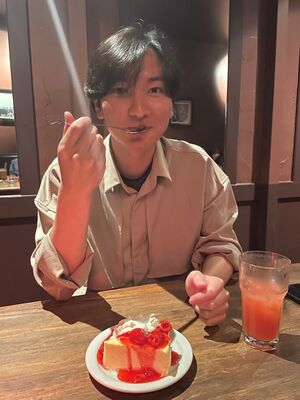Course:VANT149/2022/Capstone/Arts/GroupP6



Title of Project
Investigating University Students’ Learning Experience during the COVID-19 Pandemic in India
Research Question
How has COVID-19 impacted the postsecondary learning experience of students in different socioeconomic classes in India?
Student Researcher Names
Mioko Umemura; Taiga Yamaguchi; Giang Tran; Hanchi Xu

Project Proposal Summary
Since the COVID-19 pandemic hit the world in 2020, students of all ages have been facing an unprecedented shift in education style from traditional in-person lessons to online, virtual lessons. Due to its sudden shift, many people have experienced technical issues including lack of technical knowledge or even device accessibility. India is known for its second-biggest population in the world, and there is a significant education accessibility gap between people in rural areas and city areas, which is considered to be worsened due to the pandemic. Therefore, our research objectives are set to investigate whether people in suburban and urban areas have the equal ability to participate in online classes and their learning experience. In this research, we are going to conduct in-person semi-structured interviews on 16 students who experienced online learning during the COVID-19 pandemic from two universities in India, one located in an urban area and the other one located in a suburban area. After collecting data, we are going to analyze the data using thematic analysis and sort out interview responses by using specific themes in common such as “time management issue due to the flexibility in learning style.” Since our research objective is to understand students’ learning experience in detail when the COVID-19 hits and shifted traditional in-person learning to online learning, and how their experience varies depending on different socioeconomic status, a qualitative method by using semi-structured questions and asking a small number of people would be suitable rather than conducting survey with large sample group.
Project Objectives and Contribution to Scholarship
Although the studies discussed the accessibility inequity between the students from the city and rural areas (Varghese et al., 2018) in terms of in-person as well as online higher education learning, their actual school-life experience has not yet been studied such as the impact on their grades, course material change, and their attitude. Therefore, to address the empirical void, this study aims to examine the postsecondary school learning experience of Indian students from different socioeconomic levels during the pandemic. Our study investigates the real learning experience during the covid-19 pandemic and the impact of different socioeconomic status on online education. This may contribute to helping establish a new learning style across the world, providing all people with equal access to quality education including both in-person and online learning regardless of their lifestyle, and encouraging further research about the relationship between wealth and education. Furthermore, we will not only contribute towards professional researchers finding a solution for the education inequity in developing countries like India, but our study may also be a trigger for people to acknowledge and think about the seriousness of education imbalance and its negative effect on the sustainable future including environmental conservation or human equity.
Connection of Research Proposal to Sustainability
Education nourishes the younger generation’s creativity and critical thinking, which is crucial for the development of humanity. Therefore, it also implies that the lack of access to education in developing countries could be a big blow to the future generation. India, along with the anticipated increasing population, equal education access will allow the population to grow more, significantly advancing the country’s future prosperity. However, looking in detail at India, according to Chatterjee and Das (2021), the distribution of information technologies is unequal among states. Online classes under the COVID-19 pandemic required every student to have devices connected to the internet to take classes. In India, in which there are some states that are not equipped with infrastructure (Dutta, 2020), there might be some students who could not afford to have internet and take classes during the pandemic, which does not meet that providing everyone access to Quality Education, the fourth goal of the SDGs17.
References
Chatterjee, A., & Das, S. (2021). Information communication technology diffusion and financial inclusion: An inter-state analysis for India. Innovation and Development, 11(1), 1-23. https://doi.org/10.1080/2157930X.2019.1678803
Dutta, A. (2020). Impact of digital social media on Indian higher education: alternative approaches of online learning during COVID-19 pandemic crisis. International journal of scientific and research publications, 10(5), 604-611. http://dx.doi.org/10.29322/IJSRP.10.05.2020.p10169
Varghese, N. V., Pachauri, A., & Mandal, S. (2018). Teaching, learning and quality in higher education in India: An introduction. In N. V. Varghese, A. Pachauri & S. Mandal (Eds.), India higher education report 2017 (pp. 1-20). SAGE Publications, Inc. https://dx.doi.org/10.4135/9789353280338.n1